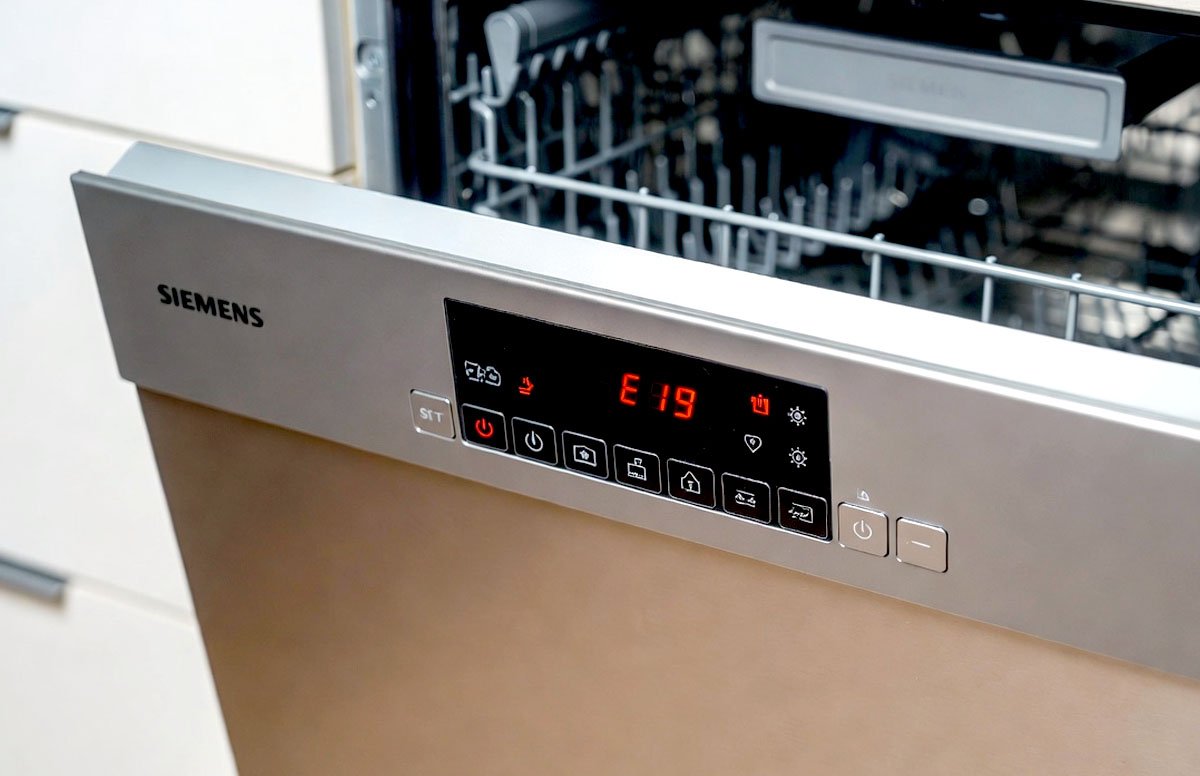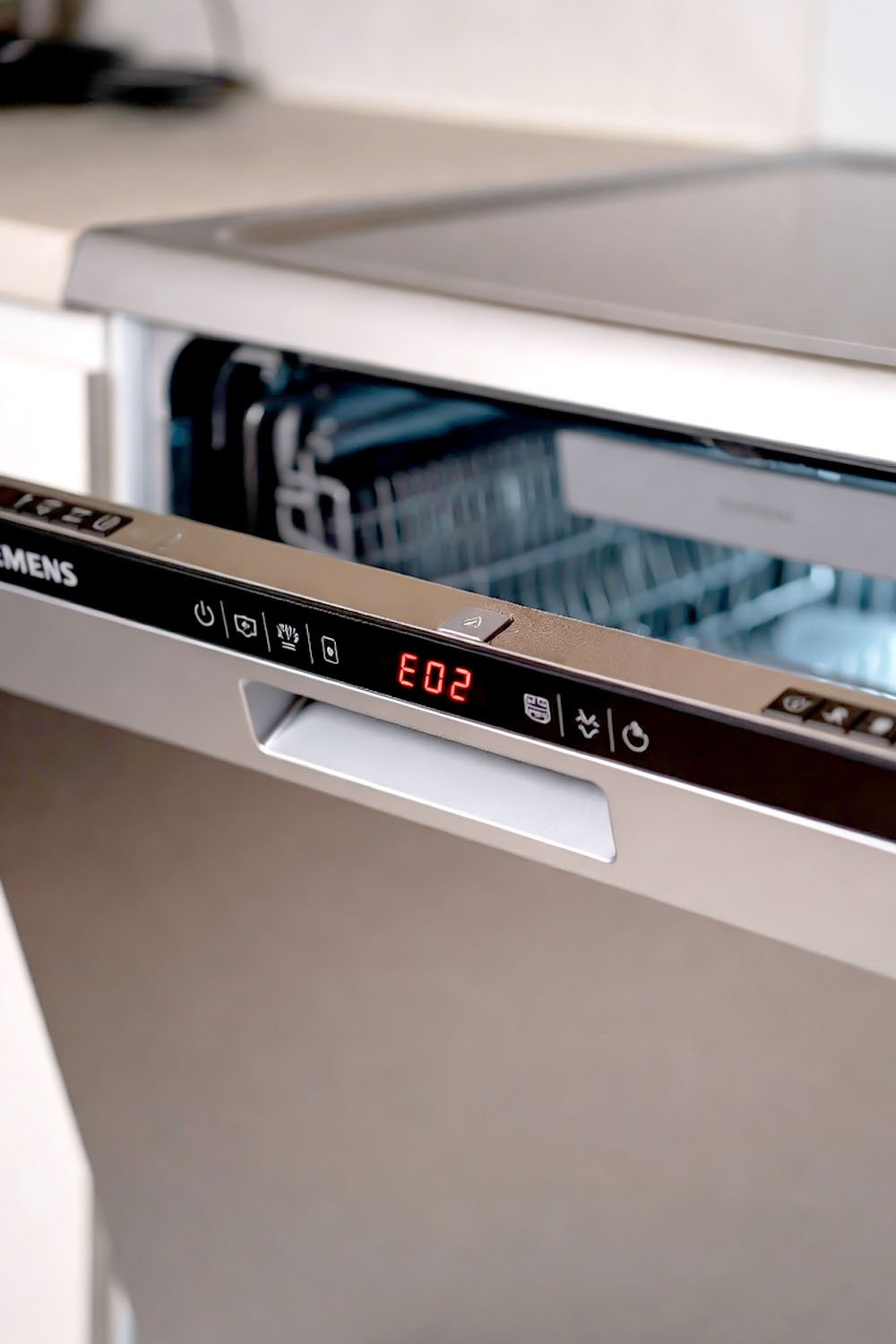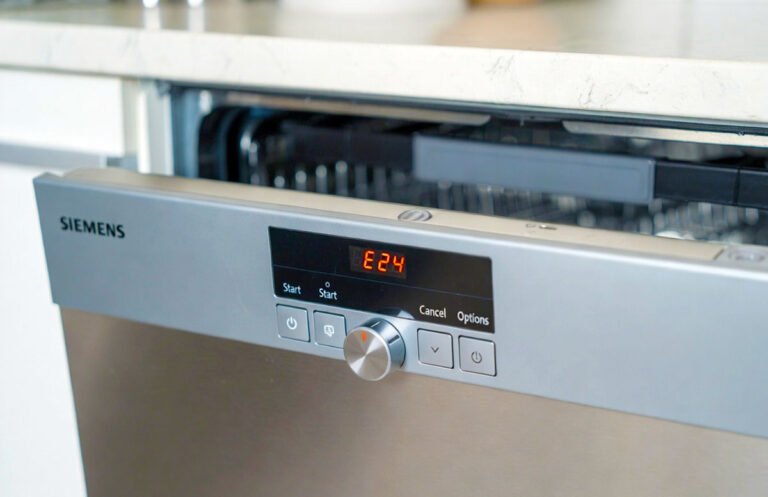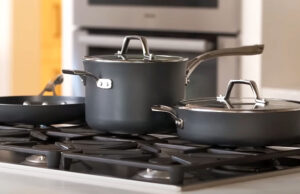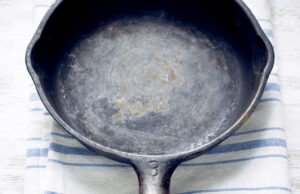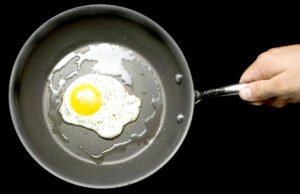As an Amazon Associate, I earn from qualifying purchases at no extra cost to you.
Why Do Glasses Get Cloudy in Dishwasher? Common Reasons
You might have noticed that after washing your glasses in the dishwasher, they don’t look clear and shiny anymore. Instead, they come out cloudy or foggy. You’re not alone in this—many people wonder why this happens even after a full wash. The main reason glasses get cloudy is because of hard water minerals or dishwasher detergent reacting with the glass. In this article, you’ll learn exactly why this happens and how to stop your glasses from getting cloudy again.
What Causes the Cloudy Look on Glasses?
When you put your glasses in the dishwasher, they get cleaned by water mixed with detergent. But sometimes, the water used is “hard water,” which means it has many minerals like calcium and magnesium. These minerals don’t just wash away; they can stick on the glass surface after the water dries. This layer looks cloudy or like a white fog. This problem is called “hard water spots.”
Also, the dishwasher detergent sometimes reacts with these minerals or with the glass itself, causing a tiny damage or etching on the glass surface. This etching makes the glass look dull and foggy. Over time, the cloudiness gets worse because the damage builds up.
Another reason is how the dishwasher works. If the water isn’t hot enough, or if the dishwasher doesn’t rinse well, detergent and minerals can stay on the glass. This also causes cloudiness.
Many people don’t know that washing glasses by hand with soft water and mild soap can keep them clearer. But dishwashers use a strong mix of detergent and very hot water, which can make glasses look cloudy faster if you have hard water.
- Hard water has minerals that stick on glass.
- Detergent can react with minerals or glass, causing tiny damage.
- Poor rinsing or low water temperature leaves residue.
- Cloudiness grows over time with repeated washing.
- Hand washing with soft water can keep glasses clearer.
How Hard Water Affects Your Glasses
Hard water is water that contains a lot of natural minerals. These minerals don’t cause harm to health, but they do cause problems when washing dishes or glasses. The minerals calcium and magnesium are the main culprits. When hard water dries on your glass, the minerals stay behind as tiny white spots or a foggy film.
If you live in a place with very hard water, your dishwasher will leave your glasses cloudy most of the time. This happens because the minerals don’t dissolve in water easily, so they build up on glass surfaces after washing. The more you use hard water to wash, the thicker this mineral layer becomes.
Hard water also changes how dishwasher detergent works. The minerals can stop the detergent from cleaning properly. Instead of washing away all the dirt, the detergent mixes with the minerals and leaves behind residue on your glasses.
Another problem is that hard water spots don’t come off easily. Sometimes even scrubbing by hand won’t fix the cloudiness because the minerals have stuck tightly or caused small scratches on the glass.
To fix this, many people use water softeners or special dishwasher salt that reduces the hardness of water. Water softeners replace calcium and magnesium with easier-to-remove minerals, so your glasses come out clean and clear.
- Hard water has minerals that create spots or fog on glasses.
- Minerals don’t dissolve easily and build up over time.
- Hard water reduces dishwasher detergent effectiveness.
- Hard water spots are tough to remove by scrubbing.
- Using water softeners or dishwasher salt helps prevent cloudiness.
Why Dishwasher Detergent Can Make Glasses Cloudy
Dishwasher detergent is made to clean tough food and grease, but it can sometimes be too strong for delicate glasses. These detergents have chemicals like phosphates and enzymes, which help break down dirt. But they can also react with hard water minerals or glass surfaces.
When detergent reacts with minerals in hard water, it forms white deposits that stick on glasses. This makes them look cloudy or foggy. Some detergents are also too harsh and cause a tiny wear on the glass surface called “etching.” This etching is permanent damage and looks like a dull haze on the glass.
Many cheaper or older dishwasher detergents are more likely to cause cloudiness because they don’t dissolve fully or leave residue. Using too much detergent can also make the problem worse. The extra detergent doesn’t rinse off properly and leaves a film on glasses.
Switching to a milder detergent made for glass or using a smaller amount can help keep glasses clear. Also, using rinse aids that help water slide off the glass can reduce detergent residue.
- Detergent chemicals can react with minerals to make white deposits.
- Harsh detergents cause tiny damage (etching) on glass.
- Cheap or too much detergent increases cloudiness.
- Using mild detergents helps protect glasses.
- Rinse aids improve rinsing and reduce residue.
How Dishwasher Temperature and Rinsing Affect Glasses
The dishwasher cleans using hot water and sprays that rinse away dirt and detergent. But if the dishwasher water isn’t hot enough, or if the rinse cycle is weak, glasses can stay cloudy.
Hot water helps dissolve detergent and minerals better. If the water is too cold, detergent may not fully rinse off, leaving a film on glasses. Sometimes dishwasher settings don’t heat water enough to get a perfect clean. Also, if your dishwasher is overloaded or glasses are placed poorly, water may not reach all surfaces to rinse properly.
Rinsing is very important because it washes away detergent and minerals after washing. If the rinse cycle is short or weak, some detergent stays on glasses. This leftover detergent dries on the glass, making it look foggy.
Regular cleaning of your dishwasher’s filter and spray arms can help the water flow better and improve rinsing. Choosing dishwasher cycles with longer rinse times or higher temperatures can make a big difference in how clean your glasses come out.
- Hot water dissolves detergent and minerals better.
- Cold water or low temperature leaves detergent residue.
- Poor rinsing leaves detergent film on glasses.
- Dishwasher overloading or bad placement stops good rinsing.
- Cleaning dishwasher parts and using strong rinse cycles helps.
How Glass Type and Quality Change Cloudiness
Not all glasses are the same. Some types of glass are more likely to get cloudy in the dishwasher than others. Glasses made with low-quality materials or cheaper manufacturing processes can be damaged easier.
Glass cloudiness is sometimes caused by tiny scratches or damage called “etching” on the surface. This damage happens when detergent or minerals slowly wear down the glass during washing. Softer glass or glass with thin walls is more sensitive and gets cloudy faster.
High-quality, thick glass or specially coated glasses resist etching better and stay clear longer. Crystal glasses are especially sensitive and need special care because dishwasher chemicals and heat can damage them easily.
If you notice your glasses turning cloudy often, it could be because of their quality. Hand washing delicate or special glasses might be a better choice to keep them looking nice.
- Low-quality glass gets cloudy faster from dishwasher use.
- Etching is tiny damage that causes dullness on glass.
- Thin or soft glass is more sensitive to cloudiness.
- Thick or coated glasses resist cloudiness better.
- Crystal glasses need special care and hand washing.
Ways to Prevent and Fix Cloudy Glasses from Dishwasher
If you want to keep your glasses clear and shiny, there are many easy things you can do. First, check your water hardness. If you have hard water, use a water softener or dishwasher salt to reduce minerals.
Use dishwasher detergent that is gentle or made for glass. Avoid using too much detergent. Add rinse aid to help water flow off glasses and prevent spots.
Make sure your dishwasher is clean. Regularly clean filters and spray arms so water flows well. Load glasses properly with space around them so water can rinse every part.
Try using higher temperature cycles or longer rinses if your dishwasher has these options. If glasses are still cloudy, soak them in vinegar or a special glass cleaner to remove mineral buildup.
For delicate glasses or special crystal, hand washing with soft water and gentle soap is best to avoid damage.
- Use water softeners or dishwasher salt for hard water.
- Choose mild detergent and use rinse aid.
- Keep dishwasher parts clean for better water flow.
- Load glasses with space to allow good rinsing.
- Use hot water cycles and soak cloudy glasses to clean.
- Hand wash delicate glasses to avoid damage.
Final Thoughts
Cloudy glasses from the dishwasher are mostly caused by hard water minerals, strong detergent, and dishwasher settings. Knowing these causes can help you fix the problem and keep your glasses clear. Using water softeners, mild detergents, rinse aids, and the right dishwasher settings can make a big difference. Taking care of your dishwasher and choosing good quality glasses also helps. If you have delicate glasses, washing by hand is a safer option. With these simple tips, your glasses will stay sparkling clean and clear for a long time.
Frequently Asked Questions (FAQs)
Is it normal for glasses to get cloudy in the dishwasher?
Yes, it is quite common for glasses to get cloudy after washing in the dishwasher. This usually happens because of hard water minerals and the dishwasher detergent reacting with the glass. These minerals stick to the glass surface or cause tiny damage called etching. Both make glasses look foggy or dull. If your water is hard or you use strong detergent, cloudiness can happen faster. But you can prevent this by using water softeners, mild detergents, rinse aids, and by adjusting dishwasher settings.
Can I fix cloudy glasses after dishwasher washing?
Yes, you can try to fix cloudy glasses after washing. Soaking them in white vinegar for about 10-15 minutes helps remove hard water mineral buildup. After soaking, gently scrub with a soft cloth or sponge to remove the cloudiness. If the cloudiness is caused by etching, it is permanent and cannot be fixed. Preventing cloudiness by changing detergent, water softening, or washing by hand is better in the long run.
Do I need special detergent for glasses in the dishwasher?
It is a good idea to use dishwasher detergent that is designed for glass or labeled as gentle. These detergents are less harsh and reduce the chance of etching or residue build-up. Avoid using too much detergent because extra detergent leaves a film on glasses. Using mild detergent and adding rinse aid will help your glasses stay clear and shiny.
Is it okay to wash delicate or crystal glasses in the dishwasher?
Delicate and crystal glasses are often not safe for dishwasher washing. The heat, detergent, and hard water can damage them easily and cause cloudiness or etching. It is best to hand wash these glasses with soft water and mild soap. This way, you protect their shine and avoid damage.
Can dishwasher temperature affect cloudiness on glasses?
Yes, dishwasher temperature plays a big role. Hot water helps dissolve detergent and minerals better, so glasses get cleaned well. If the water isn’t hot enough, detergent can leave residue on glasses causing cloudiness. Choosing dishwasher cycles with higher temperatures or longer rinses improves cleaning and reduces cloudy spots.
Do I need to use rinse aid in my dishwasher?
Using rinse aid is very helpful. It helps water slide off the glass surface and stops water droplets from drying and leaving mineral spots. Rinse aids improve rinsing and reduce cloudiness. If your glasses often come out foggy or spotty, try adding rinse aid to your dishwasher.
Is hard water the main cause of glass cloudiness?
Yes, hard water is the main reason glasses get cloudy in dishwashers. The minerals in hard water stick to glasses when water dries, leaving white spots or foggy film. These minerals also make detergent less effective and can damage glass over time. Using water softeners or dishwasher salt to reduce water hardness helps prevent this problem.
Can I prevent cloudiness by hand washing glasses?
Hand washing with soft water and gentle soap is the best way to keep glasses clear, especially delicate or expensive ones. Hand washing avoids the harsh chemicals, heat, and hard water minerals found in dishwashers. If you want your glasses to stay shiny and clear for a long time, washing by hand is a good choice.

